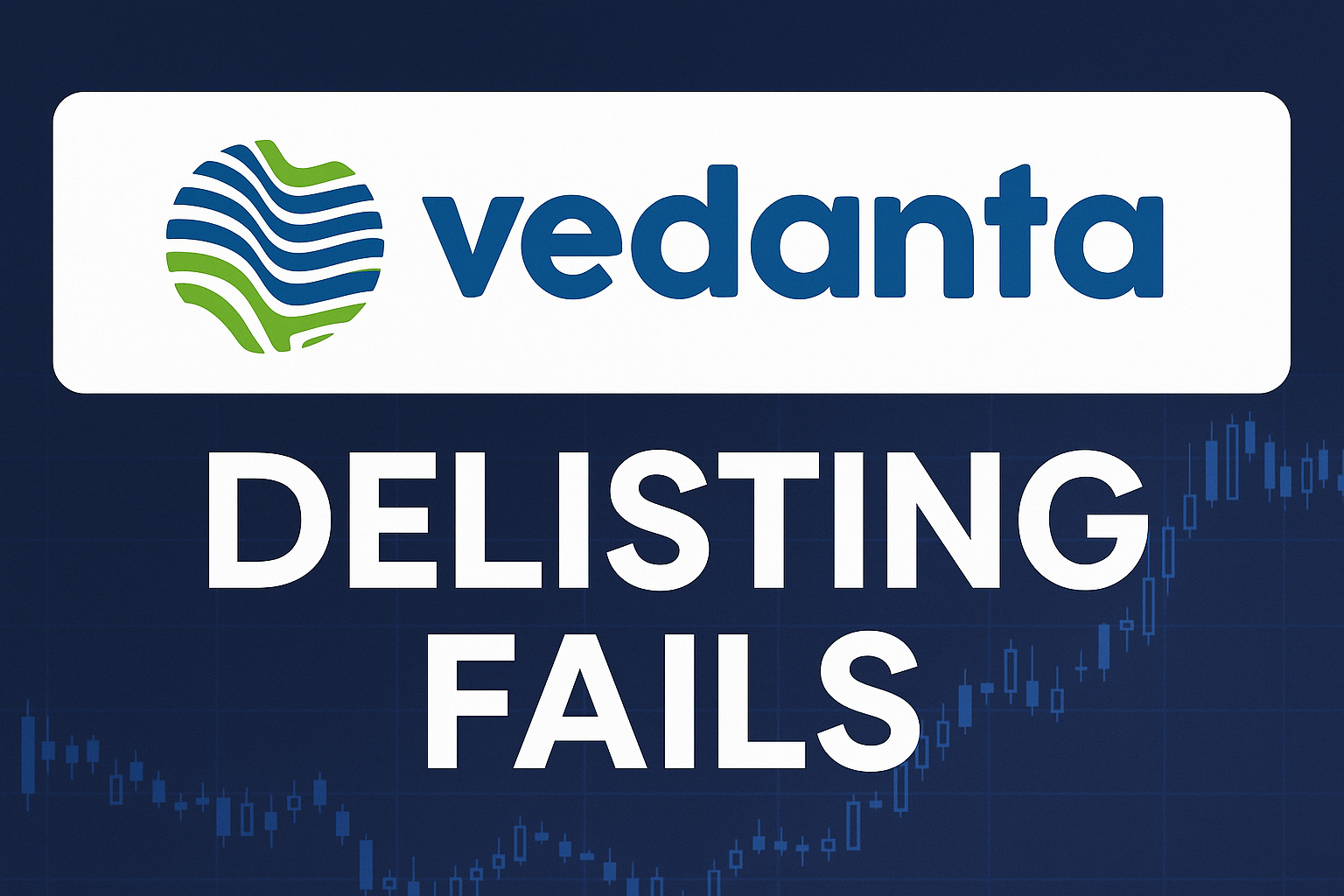Announcement: Lorem ipsum dolor sit amet, consectetur adipiscing elit. Donec et quam blandit odio sodales pharetra.
Delisting may have failed, but there are bigger takeaways
The Vedanta delisting failed to take off as the promoters did not get the 1.34 billion shares required to delist. In the end, they could only muster 1.25 billion shares after LIC did not budge from its price of Rs.320/share. This was more than twice what the promoters were ready to pay and nearly 4 times the floor price set. Let us look at why the delisting failed and what it means.

Table of Content
Delisting effort; as it happened
Vedanta Resources, which owned over half of Vedanta Ltd, had made an offer to buy out the balance shares from the public. While the original floor price was fixed at Rs.87.50, the sharp rally after the announcement meant that Vedanta may have to pay a higher price. It had already raised close to $3.20 billion which would have been enough to pay a price of Rs.150-160 per share. However, the delisting issue failed after LIC, which owns 6.7% in Vedanta, refused to tender shares below Rs.320/share.
While we shall come to the merits of the move later, the entire process raises some serious questions. How did VEDL confidently claim it had mustered 1.37 billion shares when it had only 1.25 billion shares? It raises some serious questions over transparency and the disclosure standards in such cases. Also, there are serious questions over the price volatility due to this uncertainty and allegations of profiteering. SEBI will, hopefully, look into the issue in detail.
Why LIC was justified
There are arguments that LIC was being unrealistic in demanding Rs.320, but it had a point. Why should a company be allowed to raise capital, list, acquire PSU cash cows and then delist at the bottom of the cycle without paying a decent price to shareholders? Sadly, only LIC has raised that question in the midst of this delisting process. In India, mutual funds and FPIs have traditionally been passive investors. Proxy firms in India still do not have the clout that their US counterparts enjoy. They are advisory in nature and not that influential. Also, India does not have investors like Carl Icahn, Abigail Johnson or Ray Dalios who can pick up the phone and drive a point to managements. It, therefore, falls upon the likes of LIC and they have done absolutely the right thing.
What next for Vedanta?
Clearly, Vedanta was trying to pull a fast one on investors and LIC has blocked that. For now, Vedanta will stay listed on the Indian bourses. For Anil Agarwal, this goes against his basic calculations. The delisting would have given him full access to dividends from HZL and help defray the debt of Volcan; the holding company. That will not be the case now. Either, Vedanta has to make a long term commitment to India or be willing to pay a worthy price for all the valued assets it got in the form of PSUs. The ball shifts to the court of Vedanta!
Comments